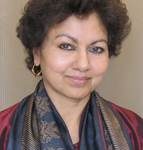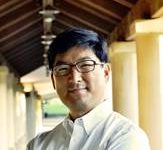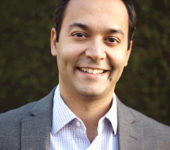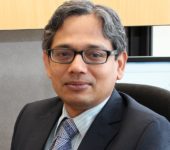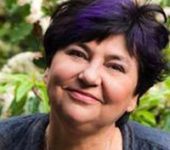October 7-10
Singapore
Pre-Conference Symposium
MOOCs and Open Education in the Developing World
Monday, October 16th, 5:00 – 7:15 PM PST (Free ZOOM Virtual Panel)
Tuesday, October 17th, 8:30 AM – 5:00 PM PST
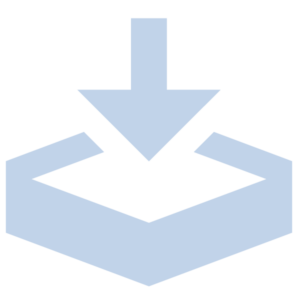 Download the Symposium Schedule & Description
Download the Symposium Schedule & Description
Symposium Keynote & Invited Speakers
-
Asha Kanwar,
Commonwealth of Learning
-
Sheila Jagannathan,
World Bank
-
Paul Kim,
Stanford University
-
Rajiv Jhangiani,
Kwantlen Polytechnic University
- Sanjaya Mishra, Commonwealth of Learning, Canada
-
Edgar Gonzalez,
Inter-American Development Bank
-
Linda Harasim,
Simon Fraser University’s School of Communication
What do the World Bank, UNESCO, the Commonwealth of Learning (COL), the Inter-American Development Bank, and numerous other organizations and institutions around the globe have in common? They are all engaged in fascinating experiments to take advantage of advances in digital technologies and e-learning design to provide education, training, and professional development opportunities to people in developing countries who previously could not partake of these opportunities. One such delivery mechanism has been the massive open online course (MOOC) as well as various MOOC-like derivatives. Another is the use of open educational resources (OER). These efforts are already benefitting millions of people, but much potential for expansion and improvement remains.
According to recent data from Class Central, MOOCs continue to evolve and expand at mind-boggling rates. In fact, they now total nearly 7,000 such courses provided by over 700 universities worldwide that have reached 58 million students in 2016, of which 23 million registered for the first time (see https://www.class-central.com/report/mooc-stats-2016/). Last year, Coursera alone had 23 million registered users and edX another 10 million. Not too surprisingly, interest in certification and microcredentials from MOOC completion has exploded during the past few years. Today, sequences of MOOCs taken can lead to one of over 250 different specializations and credentials; Coursera has created more than 160 of them including popular ones in data science, robotics, creative writing, game design and development, inspired leadership, Python programming, virtual teaching, Spanish, music production, investment management, and cybersecurity, among other topics.
It is clear from such data that learning opportunities and outcomes are being transformed. Unfortunately, minimal attention has been placed on how developing countries and regions of the world are taking advantage of these new forms of technology-enabled learning. As this symposium will make clear, however, this is exactly where exciting and impactful innovations are currently occurring. As digital forms of informal and formal learning proliferate, there is an increasing need to better understand how people in fast-growing regions of the world are implementing MOOCs and OERs. Grasping the outcomes of different projects and initiatives can help educators and researchers as well as government managers and instructional designers.
Organizations like the Commonwealth of Learning (COL), which just happens to be headquartered in Vancouver, have worked diligently to find unique ways to deliver such open content to educators and learners in developing parts of the world. Their efforts have benefitted farmers in Jamaica, Antigua, and rural India, K-12 teachers and university instructors in Pakistan, St. Lucia, and Uganda, and disadvantaged learners in Sri Lanka, Samoa, and Nigeria. COL is also providing support for instructional innovations such as flipped classrooms, MOOCs for development, blended online teacher training models, and many other distance learning innovations and models. Clearly, the COL is among the organizations leading the way toward a more equitable, sustainable, and empowering educational future.
Questions and Concerns:
There are many issues that COL and others working in this space are presently grappling with. For instance:
- To what extent are MOOCs reaching those who previously lacked adequate educational access? A growing body of research shows MOOC takers are mostly college graduates from developed countries. How can learners in developing countries be empowered to more easily access and engage in these open learning opportunities?
- To what extent can MOOCs lead to the empowerment of people previously disenfranchised? And, just how does this play out?
- To what extent can MOOCs and open educational resources lead to the greater achievement of sustainable development goals? How might this play out?
- How are those in developing parts of the world dealing with the English language dominance of MOOCs and other forms of open education?
- How are individuals as well as organizations and institutions dealing with MOOCs that are not entirely open or free?
There are many other emerging challenges in this context. For instance, institutions and organizations struggle with issues of accreditation, credentialing, quality standards, innovative assessment, and learner motivation and attrition, among numerous other areas of concern. They also want to find effective ways to use technology to empower women and girls to shape their own futures. At the same time, researchers are targeting topics related to openness, ethics, privacy and security, fiscal responsibility, and different business models of success. Many educators are looking for answers and ideas in fields such as learning analytics, adaptive learning, and alternative assessment.
In response to the above issues, this preconference symposium explores and probes unique implementations of MOOCs and open education across regions and nations. Symposium participants will explain the MOOC and open education trends in their respective locales, share key research directions and findings, and provide suggestions and recommendations for the near future (3-10 years). Symposium facilitators will help participants bond and form communities of learning and inquiry.
Symposium Goals:
- Clarify the far-ranging opportunities for alternative forms of instruction such as MOOCs and open education in the developing world;
- Identify emerging trends, projects, and innovations in e-learning and new possibilities for professional development at a distance;
- Enhance understanding of the educational, cultural, political, and economic challenges and issues facing various stakeholders in open education environments;
- Share experiences, obstacles, and opportunities with peers in different institutions and organizations around the globe;
- Identify and select MOOC and open education content and colleagues for future collaboration in communities of inquiry and practice
- Solicit interest in a special journal issue of the International Journal on E-Learning (IJEL) related to “MOOCs and Open Education in the Developing World.”
- Develop a community of practice with fellow e-learning instructors, researchers, administrators, government officials, instructional designers, consultants, etc.
Listen, reflect, discuss, think, and converse! In effect, symposium participants will kick off the E-Learn 2017 conference by co-creating a unique community of peers and hopefully make a few new friends along the way.
Special Note: The symposium coordinators, Curt Bonk from Indiana University, Tom Reeves from the University of Georgia, and Tom Reynolds from National University have coordinated two previous preconference symposia events in 2008 and 2013. These previous symposia have led to special journal issues of IJEL as well as two books, “A Special Passage Through E-Asia Learning” in 2009 and “MOOCs and Open Education Around the World” in 2015. They will be joined this time by Sheila Jagannathan, Head Open Learning campus and Program Manager of the e-Institute, from the World Bank. Curt, Tom, and Tom look forward to your participation in the 2017 symposium at E-Learn.
Organizing Committee and Symposium Facilitators:
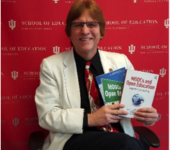
Curtis J. Bonk, Indiana University
Dr. Curtis J. Bonk is Professor at Indiana University teaching psychology and technology courses. Drawing on his background as a corporate controller, CPA, educational psychologist, and instructional technologist, Bonk offers unique insights into the intersection of business, education, psychology, and technology in his popular blog, TravelinEdMan. In addition to many national and statewide innovative distance teaching awards, in 2014, he received the Mildred B. and Charles A. Wedemeyer Award for Outstanding Practitioner in Distance Education. In 2016, he received the Fellowship Award from the Association for the Advancement of Computing in Education (AACE). He has authored several widely used technology books, including The World Is Open, Empowering Online Learning, The Handbook of Blended Learning, Electronic Collaborators, Adding Some TEC-VARIETY which is free as an eBook (http://tec-variety.com/), and, most recently, MOOCs and Open Education Around the World (http://www.moocsbook.com/), with Mimi Miyoung Lee, Thomas Reeves, and Thomas Reynolds. He can be contacted at [email protected] and his personal homepage is http://php.indiana.edu/~cjbonk/.
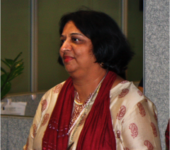
Sheila Jagannathan, World Bank
Sheila Jagannathan is Head Open Learning campus and Program Manager of the e-Institute, at the World Bank in Washington DC. She has over 28 years of experience in designing and managing distance learning programs and transforming the use of online and classroom pedagogies and technology. Sheila also provides policy advice and technical assistance to World Bank country-level capacity building programs in East Asia, China, the Middle East and North Africa, Africa and South Asia Her interest areas include MOOCs, experiential pedagogy, online/hybrid strategies, development of rich multimodal and social learning environments, big data and learning analytics, LMS, and learning ecosystems.
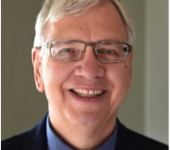
Tom Reeves, University of Georgia
Thomas C. Reeves is a Professor Emeritus of Learning, Design, and Technology in the College of Education at The University of Georgia. His research interests include evaluation, authentic learning, and educational design research. He is a former Fulbright Lecturer in Peru and he has been an invited speaker in the USA and more than 30 other countries. In 2003, he received the Fellowship Award from the Association for the Advancement of Computing in Education. In 2010, he was made a Fellow of the Australasian Society for Computers in Learning in Tertiary Education (ASCILITE). In 2013, he received the Lifetime Award from the International Association for Development of the Information Society as well as the David H. Jonassen Excellence in Research Award from the Association for Educational Communications and Technology (AECT). His books include Interactive Learning Systems Evaluation, A Guide to Authentic E-Learning, Conducting Educational Design Research. He consults with the World Health Organization and other organizations on the development of authentic task-based e-learning and technology-based evaluation. He may be contacted at [email protected] and his personal webpage is http://www.evaluateitnow.com/.

Tom Reynolds, National University
Thomas H. Reynolds is a professor of Teacher Education at National University in La Jolla, California where he researches design of online learning environments, standards-based online assessment of learning, assessment of online teaching competence, e-learning in Latin America, open education, and MOOCs. Before coming to National University, he served on faculty at Texas A&M University after earning earned his Ph.D. in Curriculum and Instruction at the University of Wisconsin-Madison. He twice served as a Fulbright Scholar—2010 in Colombia where he researched open education resources and 1998 in Peru where he lectured on Web-based learning and technology-enhanced instruction. He can be contacted at [email protected].

